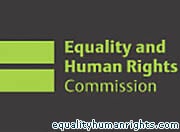The controversial Equality and Human Rights Commission (EHRC) is set to have its budget cut by “almost 60 per cent”, according to The Times newspaper.
The EHRC funded the case of the same-sex couple who sued Christian B&B owners over their double bed policy.
The quango, which was formed in 2007 and is Government funded, has far-reaching powers to enforce equality duties and support legal actions to “push the boundaries of the law”.
Quango
Last year the Home Secretary said that the EHRC had a “track record” of misusing money.
Now The Times reports that the quango’s budget will be cut to £22.5 million before the next General Election. Its budget has already been reduced from £60m to £53m by the Government.
Among other changes at the quango the number of staff it employs will be reduced from 460 to 200 and it will cease operating a helpline.
Trevor Phillips, the EHRC’s chairman, is set to make a speech on Tuesday saying the Commission is undergoing restructuring to focus more on regulatory work. Mr Phillips, speaking at the weekend, appeared to cast doubt on the scale of the cutbacks.
Taxpayers
A spokesman for the Government Equalities Office confirmed that plans to have the EHRC “substantially reformed” would be published soon.
He said: “All public bodies need to tighten their belts and the commission is no different”.
The spokesman commented: “In the past it has not been careful enough with taxpayers’ money and that has to change.”
A spokesman for the EHRC said that it had already reduced its staff significantly after an 18-month review of its activities and added: “We are confident that these changes will allow us to deliver maximum impact and value for public money.”
Appeal
Last month a judge ruled that Christian B&B owners, Peter and Hazelmary Bull, had acted unlawfully in not allowing Steven Preddy and his homosexual civil partner Martyn Hall to occupy a double room.
The Christian couple were fined £3,600 after the EHRC-funded legal action against them. They are set to appeal the decision.
The EHRC has previously said that making girls wear skirts as part of a school uniform policy is “potentially unlawful”, claiming it may discriminate against girls who believe they are boys.
Fair
The equality watchdog has also claimed that discrimination laws should treat veganism as a belief, and that vegans should be afforded the same protection as religious groups.
The group has also called for people to be questioned about their sexual orientation each time they visit hospital A&E departments, report crimes to the police, or respond to a major survey.
Last year a Guardian commentator questioned the EHRC’s obsession with equality of outcomes, and warned that the quango’s “definition of a fair society is one that champions the constant reduction of unequal outcomes.”
Julian Glover’s comments came as the EHRC released a 750-page report on inequality in Britain. The report didn’t mention any of the high profile religious liberty cases which have hit the headlines in recent years.
Wrongheaded
Mr Glover said: “I think the EHRC has a wrongheaded idea of fairness. It measures the extent to which people’s lives are different, and then calculates the action needed to make them more the same. The assumption is that equality is what we all want.”
Mr Glover went on to explain that a valid alternative to enforcing equal outcomes would be to provide everyone with equality of opportunity, which would then allow them to realise their potential.
He commented that “the actions needed to compel equality may be seen as unfair by those who do not benefit from them”.
Mr Glover continued: “An equally valid idea of a fair society may be one in which people are given the space and the right to strive for inequality: advantage achieved by their own efforts.”

